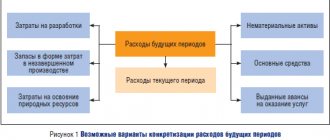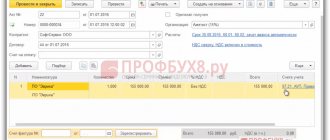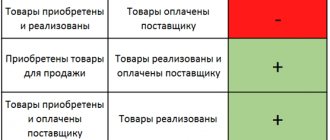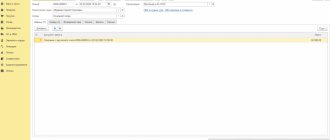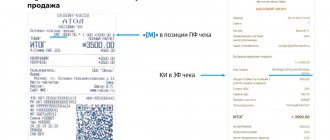Expenses relating to previous tax periods
Let’s assume that this year the organization established expenses that were not taken into account last year 2021. In this case, the official has two options:
- It is necessary to submit to the tax office an updated income tax return for the previous year, including information about missing expenses.
- Take into account the discovered expenses in the tax base when determining the tax amount for 2021.
The second option is allowed to be executed only if it turns out that more tax was paid last year than necessary. This follows from paragraph 1 of Art. 54 Tax Code of the Russian Federation.
In the case under study, there is an overpayment of tax, since the tax base for 2021 was overestimated, therefore, the organization has the right to accept last year’s expenses when calculating the taxable base for income tax in the current year 2020 .
However, tax inspectors are ambiguous on this issue. In their opinion, if an organization plans to take into account past expenses this year, then it needs to fulfill three conditions that are not directly described in the Tax Code of the Russian Federation.
"A spoon of tar"
At the same time, it should be noted that the above option for reflecting expenses has one significant drawback. The fact is that filing an updated declaration with a smaller amount of tax payable to the budget, in addition to a desk audit (conducted in the manner established by Article 88 of the Tax Code of the Russian Federation ), can provoke an on-site audit.
The validity of this statement is confirmed by the recommendations of Federal Tax Service specialists on conducting on-site inspections ( clause 1.3.2 of Letter No. AS-4-2/13622 ). It follows from this document that the tax authority, as part of an on-site audit, has the right to check the period for which the updated declaration was submitted (even if this period exceeds three calendar years preceding the year in which such a declaration was submitted). An exception is the case when the corresponding period was previously covered by an on-site inspection (see also Letter of the Federal Tax Service of Russia dated May 29, 2012 No. AS-4-2/8792 ).
Thus, by submitting an amended return in which the amount of income tax payable to the budget is reduced, the taxpayer risks that an unscheduled on-site tax audit may be assigned to him. Let us add that this risk increases in the case of repeated clarification of information for the same period.
At the same time (as mentioned above), adjusting the tax base of the previous period is far from the only way to reflect previously unrecognized expenses in accounting.
The tax return for 2021 must indicate “tax due”
When submitting a return for the previous year, there must be tax “payable”, i.e. there was an actual transfer of funds to the Federal Tax Service account at the end of the year.
It seems logical here that if more tax was calculated than necessary, then there was an overpayment. If at the end of last year there was a loss, then there can be no talk of any over-transferred amount of tax.
It is also worth noting that the amount of tax payable for 2021 does not matter, the main thing is that it actually exists.
Timely recording of expenses would not have resulted in losses in the previous period
Let's assume that the expenses were initially reflected in the income tax return for 2021, then this should not lead to losses at the end of the year.
Let's look at an example. Last year, the tax base was calculated in the amount of 200,000 rubles. This year, previously unaccounted expenses were discovered in the amount of 230,000 rubles. Accordingly, if we imagine that last year the organization took into account this amount in a timely manner at the end of the year, then there would be a loss of 30,000 rubles. (200,000 – 230,000).
The inspectors are of the opinion that in this case it is impossible to accept 2021 expenses in the current year. In accordance with Art. 283 of the Tax Code of the Russian Federation there is an established system for transferring losses from previous years. Thus, until 2021 inclusive, when calculating the current income tax, losses from previous years can be written off from the tax base in an amount not exceeding 50% of the calculated amount.
Let us assume that at the end of 2021 the tax base amounted to 190,000 rubles, then in accordance with clause 2.1 of Art. 283 of the Tax Code of the Russian Federation, the organization has the right to reduce the base by only 95,000 rubles (190,000 x 50%). If last year’s expenses are applied this year in full, then the declaration will have to show a loss, which will lead to damage to the budget:
190,000 – 230,000 = - 40,000 rubles - loss.
How to take into account the expenses of past years of an organization using a simplified taxation system
According to paragraph 2 of Art. 346.17 of the Tax Code of the Russian Federation, expenses of a taxpayer applying a simplified taxation system are recognized as expenses after their actual payment. In this case, payment for goods (work, services, property rights) is recognized as the termination of the obligation of the taxpayer - the purchaser of goods (work, services, property rights) to the seller, which is directly related to the supply of these goods (performance of work, provision of services, transfer of property rights).
Thus, for expenses to be recognized, two conditions must be met:
— goods received (results of work performed, services provided are accepted; property rights are transferred);
- goods (works, services, property rights) have been paid for.
The fact of receipt of materials is confirmed by an invoice received from the seller, as well as a receipt order (Form No. M-4) or another similar document that the buyer draws up when registering materials (clauses 44, 49 of the Guidelines for accounting of inventories, approved by Order of the Ministry of Finance of the Russian Federation dated December 28, 2001 No. 119n, hereinafter referred to as the Guidelines).
In cases where material assets arrive at an organization without documents, the delivery is called uninvoiced. According to clause 37 of the Methodological Instructions, uninvoiced deliveries are accepted into the warehouse with the preparation of a materials acceptance certificate. The act of acceptance of materials is drawn up in at least two copies. The posting of uninvoiced supplies is carried out on the basis of the first copy of the specified act. The second copy of the act is sent to the supplier. Thus, materials received from the seller without accompanying documents are accepted for accounting (accounted for) by the buyer in the generally established manner on the basis of the act.
According to paragraphs. 1 item 2 art. 346.17 of the Tax Code of the Russian Federation, expenses for the acquisition of raw materials and materials are recognized for tax purposes at the time of repayment of the debt by writing off funds from the taxpayer’s current account, payment from the cash register, and if there is another method of repaying the debt - at the time of such repayment.
As follows from the question, the materials were received and paid for in 2012. Accordingly, in 2012 they must be registered by drawing up an act and a receipt order (Form No. M-4). Since the conditions for recognizing expenses (materials received and paid) were met, expenses associated with the acquisition of materials should have been recognized in 2012.
The fact that the services were provided and accepted by the customer is confirmed by the certificate of services rendered. The procedure for recognizing expenses in this case depends on the terms of the contract and the date of drawing up and (or) signing of the act.
For example, the terms of the contract may stipulate that services are considered provided after the act is signed by the customer. In this case, the date of recognition of expenses by the taxpayer-customer is the date of signing the act.
If the contract specifies that the date of provision of services is the date of drawing up the act, then the date of recognition of expenses for the customer is precisely this date.
Accordingly, if the date of provision of services falls on 2012, then the costs of paying for them for tax purposes should also be recognized in 2012.
Based on the above, we recommend making corrections to the book of income and expenses and submitting an updated tax return for the single tax paid in connection with the application of the simplified taxation system for 2012.
In the current tax period it is necessary to show profit
The final condition was put forward by the Ministry of Finance of the Russian Federation in a letter dated April 6, 2021 No. 03-03-06/2/27064.
The letter once again emphasized the importance of the fact of overpayment of tax in the last reporting year. In addition, officials said that in order to take into account last year’s expenses in the current year, profits must be calculated in 2021 based on the results of 12 months.
In their opinion, officials did not consider it necessary to refer to any legislative act.
Non-operating expenses
If we are talking about “late” documents for non-operating or other expenses (as a rule, these are costs associated with paying third-party organizations for work or non-production services), then a special rule established in paragraphs. 3 paragraph 7 art. 272 Tax Code of the Russian Federation . Let us remind you that this provision provides for the taxpayer’s right to choose a specific method of accounting for expenses (including those confirmed by “late” documents). This may be (unless otherwise established by Articles 261 , 262 , 266 , 267 of the Tax Code of the Russian Federation ):
- settlement date in accordance with the terms of concluded agreements;
- the date of presentation to the taxpayer of documents serving as the basis for making calculations;
- the last day of the reporting (tax) period - for expenses in the form of commission fees, costs of paying third parties for work performed (services provided), rental (leasing) payments for rented (leased) property, as well as other similar expenses.
The fairness of this approach is confirmed by the conclusions of the arbitrators made in the resolutions of the FAS North-West District dated 06/05/2012 No. A44-3816/2011 , FAS North-West Region dated 02/22/2012 No. A53-11894/2011 . And FAS MO in Resolution No. A40-54227/12-90-293 clarified: in tax legislation there is no obligation for the taxpayer to record his choice of the date of non-operating and other expenses in the form of costs for paying third parties for the services they provide in the accounting policy for tax purposes. If the taxpayer recognizes the costs of paying for such work not at the time of signing the act, but during the period of payment for the service provided, these actions fully comply with the requirements of paragraphs. 3 paragraph 7 art. 272 Tax Code of the Russian Federation .
Significant point: In subclause 3 of clause 7 of Art. 272 refers to the presentation of documents. The concept of “present” in explanatory dictionaries of the Russian language means “show in confirmation.” In other words, the use of the concept of “presentation” in relation to documents indicates that these documents can be seen with one’s own eyes. That is, we are talking about the date when the documents were actually received by the taxpayer. This is exactly how the mentioned concept is interpreted in law enforcement practice (see, for example, resolutions of the Federal Antimonopoly Service of the Moscow Region dated August 14, 2013 No. A40-110013/12-20-566 , Federal Antimonopoly Service of the North-West Zone dated January 31, 2011 No. A56-10165/2010 ).
Officials of the Ministry of Finance, in turn, often replace the concepts in this norm. For example, in Letter No. 03-03-06/1/774 , financiers indicated that the date of presentation to the taxpayer of documents serving as the basis for making calculations should be understood as the date of preparation of these documents. Agree, there is a difference between drafting and submitting documents, and a considerable one.
Litigation
The Supreme Court of the Russian Federation has considered cases of this kind more than once. In their decisions, judges have always been of the opinion that there is no need to submit an updated declaration, and the discovered expenses must be written off for the current year.
The judges believe that the organization has every reason to demand a refund or offset of the overpaid amount. The only condition is that no more than three years must pass, as evidenced by Art. 78 Tax Code of the Russian Federation.
However, the situation when an enterprise discovers unaccounted expenses from last year remains controversial to this day. If the organization fails to resolve the issue with the tax inspectorate at the initial stage, then the proceedings will most likely end up in court. Therefore, in order to avoid judicial red tape and disputes with the inspectorate, it is better to approach the issue of initially filling out declarations more carefully.
